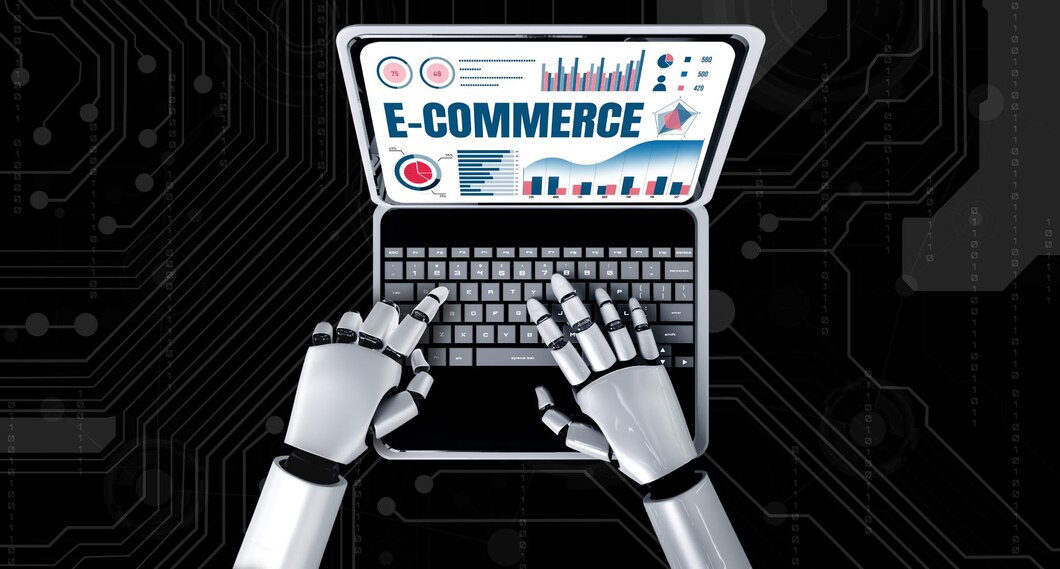AI Artificial intelligence is transforming e-commerce with its technological advances and creating new possibilities for businesses and entrepreneurs.
By applying AI to e-commerce, processes can be automated and optimized, services can be tailored to customers, customer satisfaction can be enhanced and business performance can be improved. This article will explore how AI contributes to e-commerce and what advantages it offers to projects in this domain.
The role of artificial intelligence in e-commerce
Process Automation:
AI enhances e-commerce processes like order processing, inventory management, and procurement by automating and simplifying them. AI algorithms can swiftly and accurately handle large amounts of data, saving time and minimizing mistakes.
Personalization of services:
AI enables e-commerce to provide personalized offers and services for each customer. AI algorithms use data on a customer’s behavior, preferences, and purchase history to suggest and offer what they need the most. This greatly enhances the customer experience and boosts the chances of repeat purchases.
Improved customer service:
AI improves customer service for e-commerce projects by offering predictive analysis and natural language processing. AI-powered chatbots can answer common questions and make recommendations, saving time and enhancing customer service.
Forecasting and Analytics:
E-commerce businesses use machine learning and data analytics algorithms to forecast customer behavior, trend analysis, and sales optimization. This helps them to make data-driven decisions, enhance advertising effectiveness, and anticipate demand fluctuations.
Fraud Detection:
Fraud Detection. E-commerce businesses can prevent financial losses by using AI-powered fraud detection systems. These systems use machine learning algorithms to analyze large data sets and identify suspicious activities, fraudulent transactions, and abnormal behaviors in real time.
Recommendation Engines:
Recommendation Engines. AI algorithms create personalized product recommendations for customers based on their preferences, purchase history, and browsing patterns. E-commerce businesses can boost order values and revenue by offering products that are relevant and complementary, increasing upselling and cross-selling chances.
Visual Merchandising:
Visual Merchandising. AI uses product images, customer preferences, and market trends to recommend the best product placement and visual merchandising strategies. This helps e-commerce businesses make their websites or mobile apps more effective, displaying products most attractively and convincingly.
AI has made significant progress in e-commerce, but the latest developments in GenAI offer new possibilities. One interesting area of focus is search engines, especially in complex e-commerce segments like the automotive aftermarket. By using LLM and vector search technologies, we can improve the contextual understanding of user queries and provide more relevant product results.
Another promising direction is the integration of GenAI into customer support services, going beyond traditional chatbots. Today’s chatbots mainly handle simple inquiries like tracking parcels, but there’s room for much smarter assistance.
With the introduction of new AI innovations, we can turn chatbots into sales assistants that can help customers choose the right parts and check compatibility with their vehicles—without human intervention. Statistics show that a large percentage of call center inquiries, from 17% to 25%, involve part selection, indicating significant automation opportunities.
In the area of recommendation systems, the next stage of AI implementation involves the creation of second-level AI. In this scenario, AI agents will select the most suitable AI recommendation algorithm for each specific case, opening up a wide range of potential applications.
Read also:
Discover 21 new tools for shopify merchants





Leave a Reply